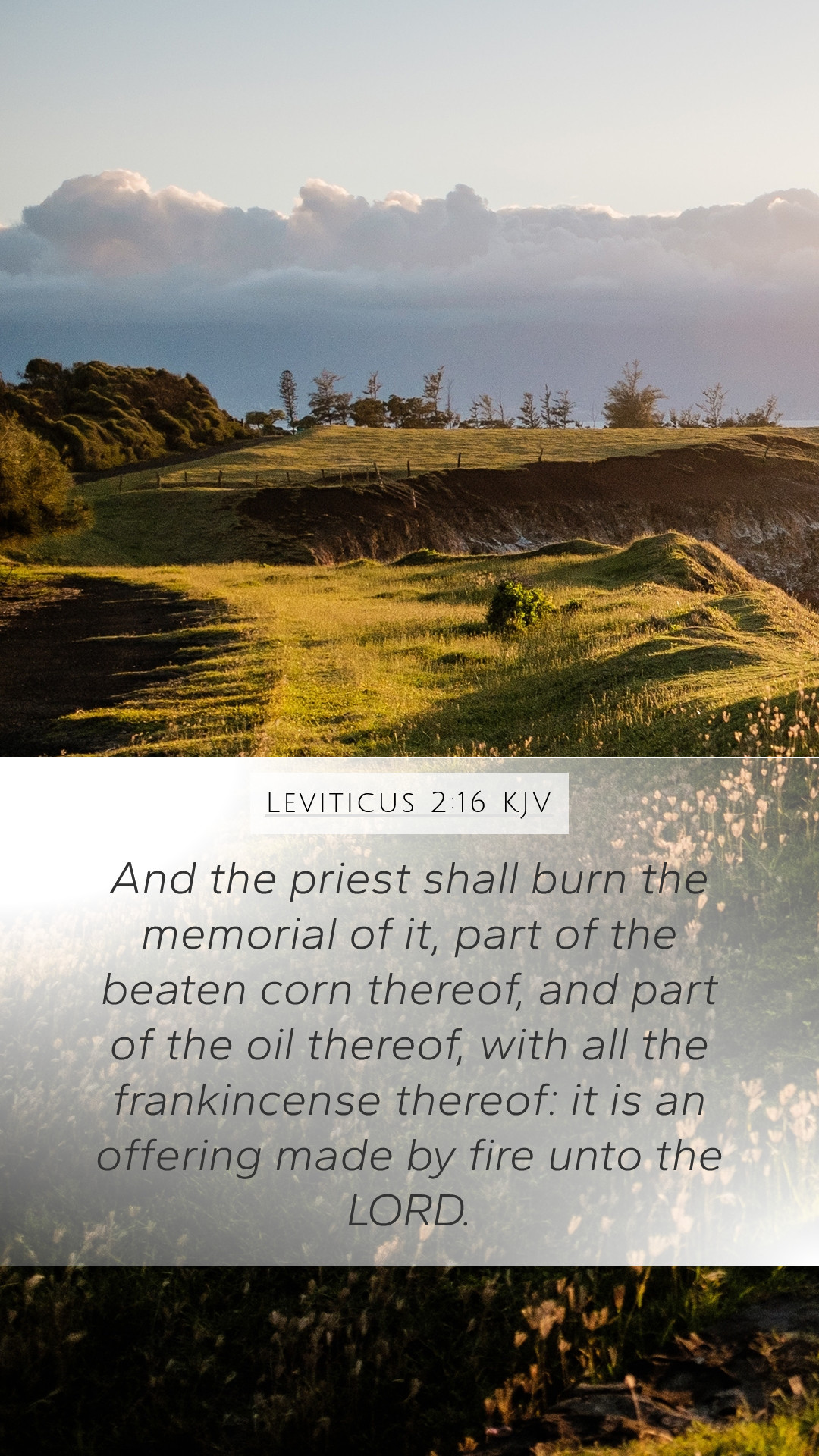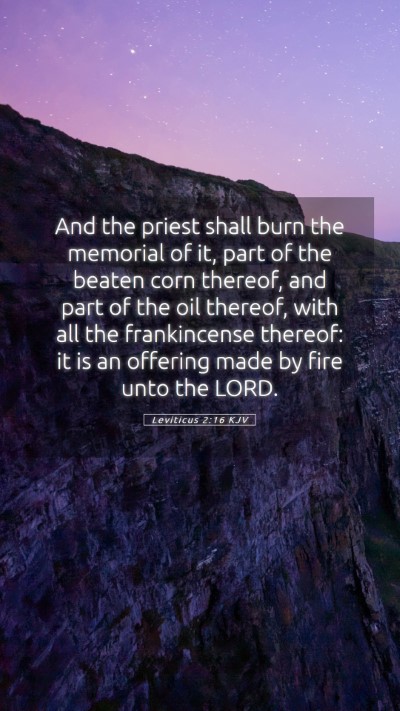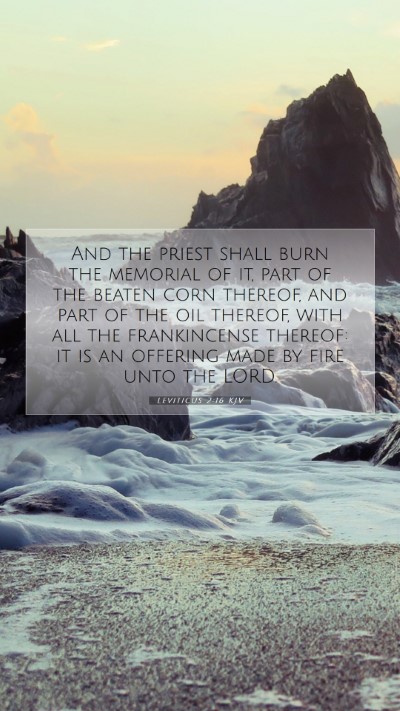Understanding Leviticus 2:16
Leviticus 2:16 states, "And the priest shall burn the memorial of it, part of the fine flour thereof, and part of the oil thereof, with all the frankincense thereof: it is an offering made by fire unto the LORD."
This verse illustrates the importance of offerings in the Old Testament sacrificial system, particularly regarding grain offerings, which were meant to express gratitude and dependence on God.
Bible Verse Meanings
The main purpose of the grain offering was to accompany other sacrifices, emphasizing the worshiper's acknowledgment of God's provision. This offering was intended to be a sweet aroma to the Lord, symbolizing the worshiper's dedication.
Bible Verse Interpretations
-
Matthew Henry: Henry explains that the grain offering was not just a form of worship but also a demonstration of one's acknowledgment of God as the source of all blessings. The involvement of the priest signifies the priestly mediation between God and the worshiper.
-
Albert Barnes: Barnes highlights the significance of the "memorial" portion being burnt. This act symbolizes the worshiper's commitment to God and the desire for acceptance and blessing. The frankincense, as a fragrant component, represents admiration and reverence.
-
Adam Clarke: Clarke emphasizes that the grain offering (or meat offering, as termed in the KJV) was an essential aspect of worship and should be made willingly. The burning signifies the integration of the offering into the worship process, making it pleasing to God.
Bible Verse Understanding
The verse sheds light on the practice of making offerings to God, which were integral to Israelite worship. By including elements like fine flour, oil, and frankincense, it illustrates how all aspects of life should be dedicated to God. Such offerings were ways to express reverence and thankfulness for His provision.
Bible Verse Explanations
The actions described in this verse require careful reflection. The grain offering was to be prepared without leaven (yeast) and salt, offering a depiction of purity and preservation in the relationship between the worshiper and God. The precision of preparation and presentation signifies the holiness of God and the due respect He commands in worship.
Scripture Analysis
The analysis of this verse invites believers to consider their own offerings to God. Are we offering Him the best of what we have? The practice of burning parts of the offering illustrates the idea that some parts are wholly for God, akin to giving our best to Him in all aspects of life.
Biblical Exegesis
Through an in-depth exegetical study of Leviticus 2:16, one can glean deeper insights into the communal and personal aspects of worship. Each element of the offering has specific symbolism—flour representing sustenance, oil denoting the Spirit, and frankincense evoking prayer and devotion.
Bible Study Insights
For groups engaging in Bible study, this verse serves as a springboard for discussions about worship practices today. How can modern believers echo the heartfelt intentions of ancient offerings in contemporary expressions of faith?
Related Bible Cross References
- Genesis 4:3-5 - Cain and Abel's offerings.
- Exodus 29:18 - The importance of burnt offerings.
- Numbers 15:2-5 - Instructions for offerings.
Conclusion
Leviticus 2:16 offers rich soil for cultivating an understanding of how offerings are a vital aspect of a believer's relationship with God. It encourages self-examination regarding what we offer in our spiritual life and how we dedicate ourselves to the Lord with every "grain" of our being.


